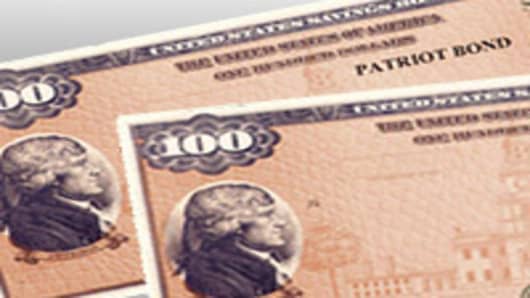Prices for U.S. Treasurys rose on Thursday as disarray in bailout plans for Cyprus stoked fears the euro zone member could see its banking sector fail and the country default.
Treasurys have mostly advanced this week after European partners demanded that Cyprus tax bank accounts to help fund a bailout. But Cypriot lawmakers rejected the idea, leaving Cyprus scrambling to find another solution.
Standard & Poor's lowered Cyprus' sovereign credit rating to CCC on Thursday, marking the country's debt as highly speculative.
The Cyprus worries have fueled fears about Spain and Italy, much larger euro zone economies and therefore harder to rescue, and the possibility of a similar bank tax in those nations.
The European Union gave Cyprus until Monday to raise billions of euros to clinch an international bailout or face a collapse of its financial system that could push it out of the monetary union.
"There's a little bit of wait and see on Cyprus," said Lou Brien, market strategist at DRW Trading in Chicago. "If they can't come up with anything and the odds of Cyprus leaving the euro zone rise, then I think that will create a flight to safety in Treasurys."
Benchmark 10-year notes were last up 10/32 in price to yield 1.923 percent. The notes' yields have traded in a range between around 1.90 percent and 1.97 percent this week, after falling from around 2.06 percent last week.
The debt may gain further to around the 1.90 percent yield area as investors worry about developments over the weekend.
"While there are some discussions going on there doesn't seem to be any solid progress being made. I don't think people want to be vulnerable to a 'risk off' move over the weekend," said Rick Klingman, a Treasurys trader at BNP Paribas in New York.
Thirty-year bonds rose 1-2/32 in price to yield 3.143 percent, down from 3.20 percent late on Wednesday.
"Without liquidity support from someone, banks will never be able to reopen," said Carl Weinberg, chief economist of High Frequency Economics. "We should also note that the government has no access to capital markets and probably little or no cash to pay its bills or to make payroll."
The Federal Reserve's latest meeting, which ended on Wednesday, did little to distract the focus from Europe.
Fed Chairman Ben Bernanke said he had yet to see meaningful changes to the troubled labor market, hence the Fed's aggressive policy stimulus stance, though the U.S. central bank's policy-setting committee acknowledged brighter economic signs.
The Fed bought $1.46 billion in bonds due 2036 and 2043 on Thursday as part of its ongoing bond purchase program.
A resolution in Cyprus may set up Treasurys for renewed yield increases as the economy improves and investors debate when the Fed will end its bond purchases, currently $85 billion per month.
"People are not looking to hold these positions for the next six months. If anything, they are looking at where they could set up new shorts," said Gennadiy Goldberg, interest rate strategist at TD Securities in New York.
The Treasury said on Thursday it will sell $99 billion in new coupon-bearing debt next week, comprising $35 billion in two-year notes, $35 billion in five-year notes and $29 billion in seven-year notes.


